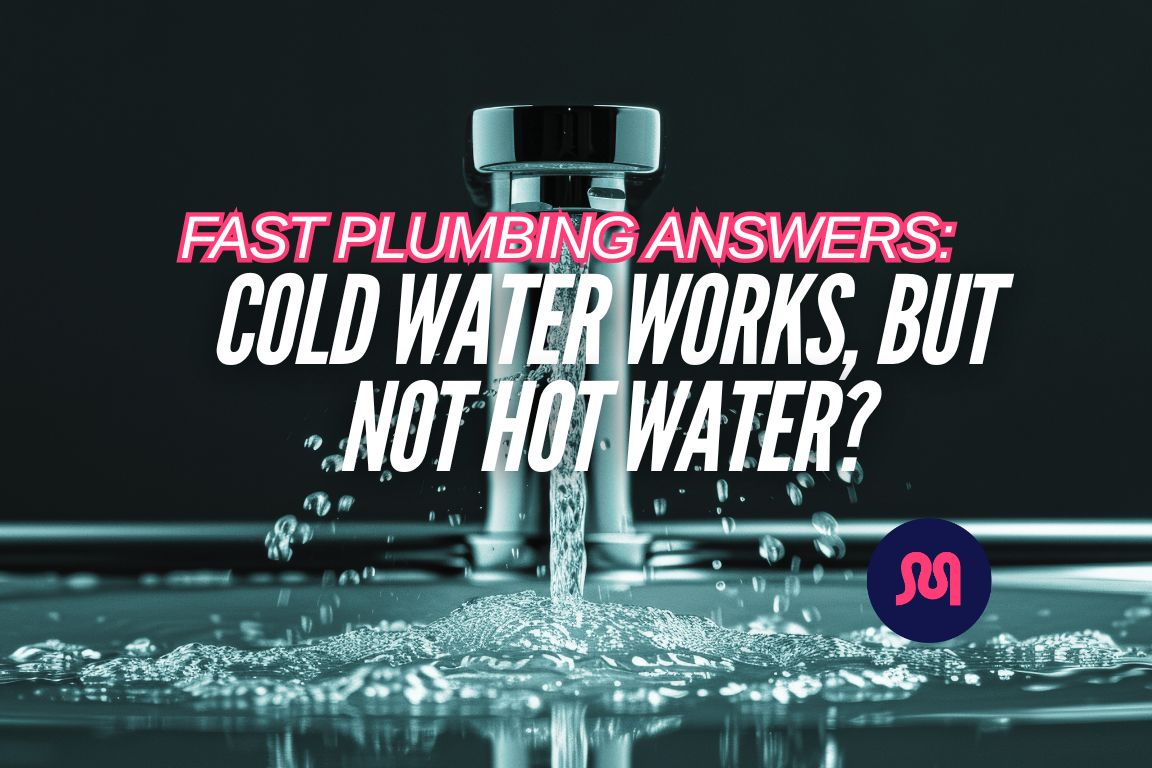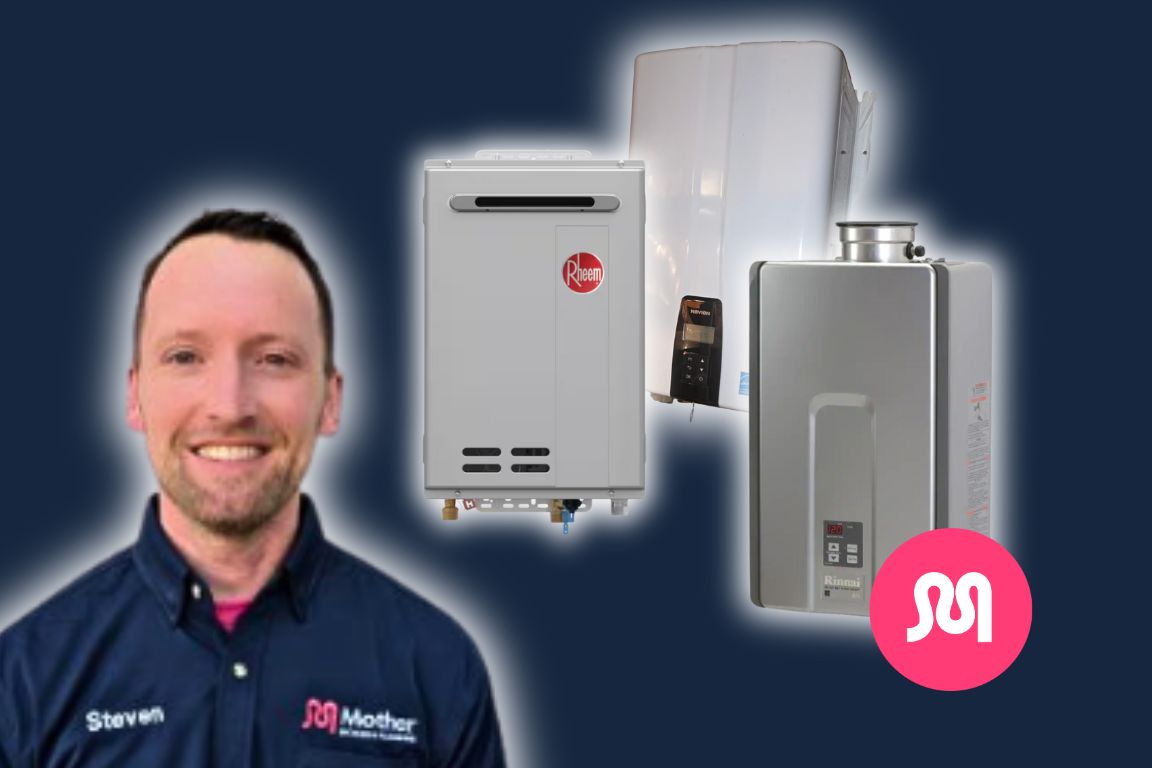Electric vs. Gas Water Heaters

table of contents
table of contents
The Real Cost of Hot Water: What’s at Stake
Choosing a water heater is not a decision most homeowners relish. Yet it’s one that can significantly impact your budget and comfort. Hot water accounts for nearly 20% of residential energy consumption. The type of water heater you choose could save—or cost—thousands over its lifespan.
Homeowners deciding between electric vs gas water heater units need to make a decision based on technology, price and efficiency.
Let's look at the differences between gas and electric water heater systems — then, we'll tell you why natural gas water heaters are best for most homeowners.
Technology Breakdown: Electric vs Gas Water Heater
Recovery Rate Explained
The biggest difference between gas and electric water heaters is recovery rate. Recovery rate determines how quickly a water heater can replenish its hot water. It's measured in gallons per hour (GPH),
- Gas Water Heaters: Faster recovery rates due to powerful burners. This makes them ideal for households with high water usage.
- Electric Water Heaters: Slower recovery rates since electric heating elements cannot match the heating speed of gas burners. This can lead to delays in hot water availability during peak usage periods.
Core Technology Comparison
Gas water heaters rely on gas-powered burners to heat water. By contrast, electric water heaters use resistance heating elements powered by electricity. Both options offer heaters in the same sizes for residential water heater installation.
- Gas Water Heaters
- Heat water faster, making them ideal for large households.
- Have higher upfront installation costs due to venting and gas line requirements.
- Emit greenhouse gases, but new models have a lower impact than electric according to a ScienceDirect study.
- Electric Water Heater
- Operate at nearly 100% efficiency, converting nearly all electrical energy into heat. This makes them a good fit for areas where electricity is generated from renewable sources.
- Have lower upfront costs and simpler installation requirements.
- Heat water more slowly and may struggle in high-demand situations.
Liquid Propane Option
For homes without natural gas access, liquid propane can power gas water heaters. This option is uncommon. If you live outside an urban area that's not served by a utility company, you may consider this. Propane is virtually always more expensive than natural gas.
Heat Pump Systems: A Brief Mention
Heat pump water heaters (hybrids) are a new technology that is uncommon. The installations are complex and expensive. The benefit: extreme efficiency.
We won't discuss them in this article, but the Department of Energy has released new standards to increase their adoption. This may update our guidance in the future.
Economic Deep Dive
Upfront Installation Costs
Gas water heaters require infrastructure: gas lines and vents. The majority of homes have these lines run already. If your home doesn't have a gas line, your install cost will go up by thousands. Electric heaters only need a suitable outlet.
Long-Term Operating Expenses
- Gas Water Heaters typically cost less to operate in regions where natural gas prices are low. However, maintenance costs, such as servicing the gas burner and ensuring safe ventilation, may offset some savings.
- Electric Water Heaters have higher long-term operating expenses due to the significant electricity needed to heat water. This makes them less economical for households with high hot water demand.
Available Incentives and Tax Credits
Traditional electric and gas water heaters aren't included in the Inflation Reduction Act. For heat pump water heaters, homeowners can claim a 30% tax credit, up to $2,000. ENERGY STAR-certified heat pump water heaters qualify based on estimated potential energy savings.
The Gas Water Heater - Best for Most Homeowners
For most households, a traditional gas water heater is the best choice. They cost less to operate, and most homes have gas lines and vents already. Gas heaters deliver faster recovery rates, and use less total energy to heat water. New impact analysis shows that gas heaters have a lower environmental impact than electric due to their improved efficiency.
Exceptions
What to Do if You Lack a Gas Line
Electric water heaters are the best option for homes without natural gas access. Energy-conscious homeowners can see if their electricity provider has renewable options.
Climate and Home-Specific Considerations
Colder climates benefit from gas water heaters. Their faster recovery rates perform better in cold weather. Conversely, electric models can excel in warmer regions with stable electricity rates.
Flexibility in Decision-Making
Ultimately, your choice should align with your household’s water usage, budget, and local utility costs. Consulting a professional plumber can help clarify these factors and ensure a decision tailored to your needs.
Your Action Plan
Before committing to a water heater, ask these 4 critical questions:
- What are the installation requirements and associated costs for my home?
- How do local utility rates for gas and electricity compare?
- Does my household’s water usage justify the investment in a high-capacity or high-efficiency model?
- Are there tax credits or rebates available for my chosen model?
By addressing these questions and weighing the pros and cons, you’ll make a choice that keeps your showers hot, your bills low, and your household running smoothly.




